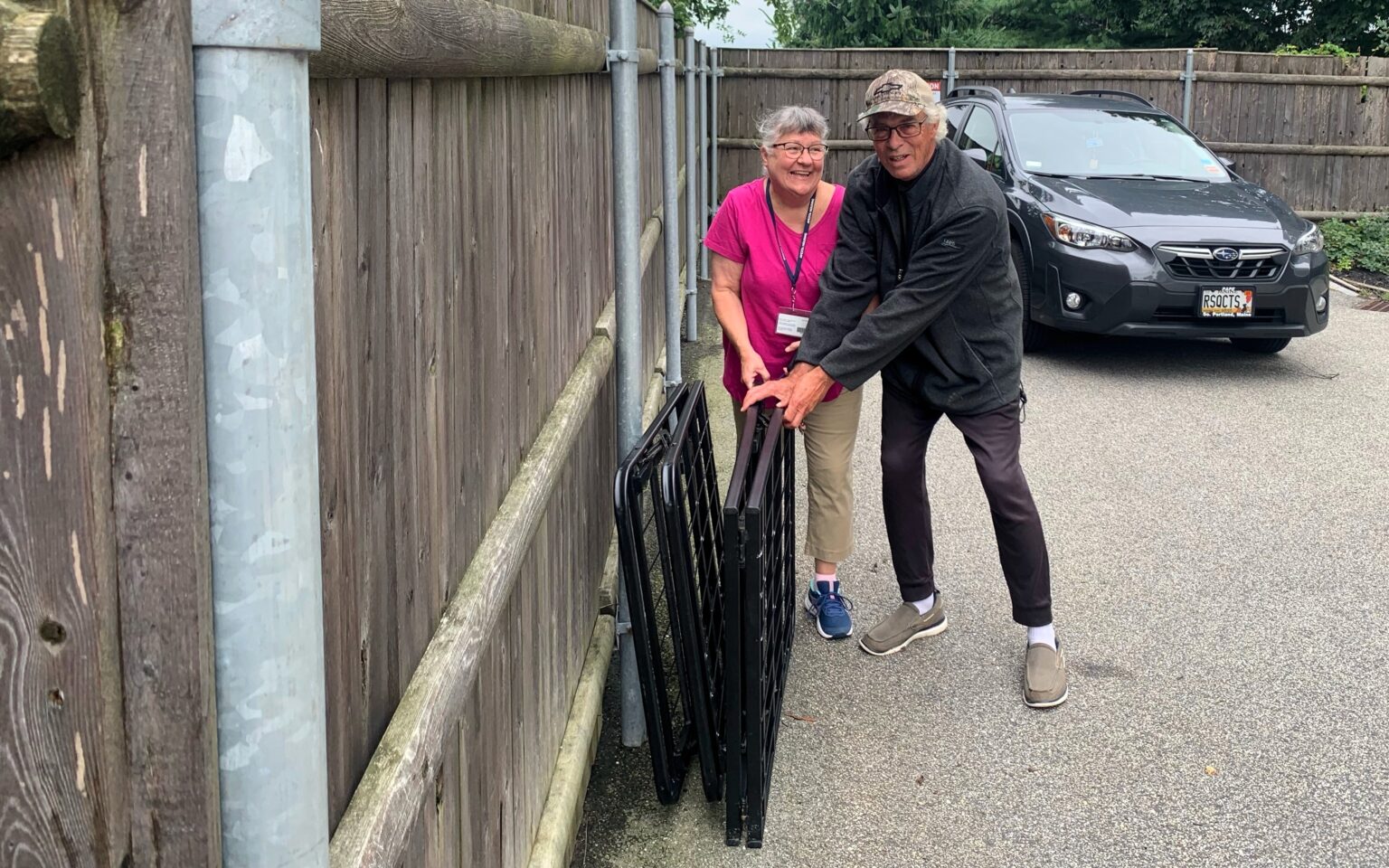Homeless to Housing caseworker Lorrie Ferrari helps Richard, a resident at Thomas Heights in Portland, transport donated bed frames to his apartment. Richard had been sleeping on a mattress on the floor.
One of the many services Avesta Housing provides its residents is helping those who were homeless transition to permanent housing. Along with Housing First, which provides on-site services to chronically homeless people in partnership with Preble Street at three designated properties, Avesta partners with Maine Behavioral Healthcare (MBHC) to provide support to previously homeless residents across our property portfolio via the Homeless to Housing program.
Lorrie Ferrari has served as MBHC’s Homeless to Housing caseworker for Avesta for six years. During that time, she has worked with about 300 households at more than 30 Avesta communities.
“It’s been incredibly reassuring to have a colleague with such a high degree of competence in her role, robust connections to resources in the community, and professional experience navigating challenging resident/client circumstances,” said Avesta Fair Housing Specialist/504 Coordinator Christine Martin. “Lorrie serves as a sounding board for all resident service coordinators, providing clarity on complicated social services and providing guidance and referrals to help both RSCs and residents succeed.”
We recently asked Lorrie some questions about the program and her work.
Q: What is the concept behind the Homeless to Housing program?
A: The concept is to add support for folks who may have little to no support and assist them with the transition from homelessness (and often chronic homelessness over many years) to be successful in their housing. Some residents I help by connecting them to a few helpful referrals/resources, after which they no longer need my support; others I connect with periodically throughout their tenancy.
Q: What services are provided as part of the program?
A: Connection with Avesta staff, connection with other services providers including case management and primary care and medical providers, referrals for furniture and obtaining household set-up supplies. I also provide assistance with housekeeping inspections and referrals to residents who qualify and perform check-ins for emotional support and referrals for mental health services.
Q: What makes the program unique?
A: Most people needing case management support require a diagnosis, which is a barrier for many of Avesta’s residents. This program allows me to assist people temporarily while searching for longer-term solutions. The goal of the program is to create successful tenancies, and by removing eligibility requirements, I can assist a much wider array of Avesta residents. The flexibility of the program also enables me to help residents who are struggling to maintain housing but weren’t unhoused prior to moving to an Avesta property.
Q: What gives you the most satisfaction about your work with the Homeless to Housing program?
A: Working with staff (usually myself and Avesta staff but sometimes folks from other agencies) for the best outcome for residents. Whether the person is able to live successfully at Avesta or needs to move on, we work to find what works best for all the residents.



